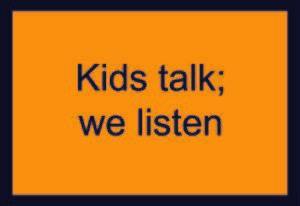The Family Law Act states that when determining the best interests of a child the parties and the court must consider the child’s views unless it would be inappropriate to do so. The BC governments’ stated purpose for section 202 of the Family Law Act is to allow children to participate in proceedings that impact them, which typically results in better outcomes for children. One way to obtain a child’s views is to have a Hear the Child Report (‘HTC Report’) prepared by a trained child interviewer.
An HTC Report is a non-evaluative, verbatim report of the views of a child on issues related to family transition or family breakdown. It is an opportunity for your child to express their views; for you to better understand their life situation through their lens and how potential changes such as relocation, parenting plans, and other changes impact their life; and to have those views considered in making decisions that are in their best interests. Arlene’s task as the interviewer is to simply obtain and relay the child’s views to adult decision-makers, without interpretation or analysis. Arlene does not offer an assessment or opinion of the child or suggest what may be in their best interests.
HTC Reports are less costly than Section 211 assessments and are completed more quickly. They are also a far less intrusive means of obtaining the child’s views when compared with using affidavits or oral testimony.
The report can be initiated by agreement between the guardians and the interviewer, by a consent order or by a judicial court order, under sections 202(b) or 224(1)(b) of the Family Law Act. Whether by agreement or court order, Arlene prefers that all guardians sign a retainer Agreement confirming consent to both the interview and preparation of the report.
Arlene will meet with your child and interview them twice; the first is usually in-person and lasts about an hour; the second interview may be by telephone and is likely to be shorter. To ensure that your child feels free to express their views, no adult or sibling is in the room during the interview. During the interview, your child retains the freedom to decide what information is to be included, omitted, changed, or updated in the report until they are happy that it accurately represents their voice.



